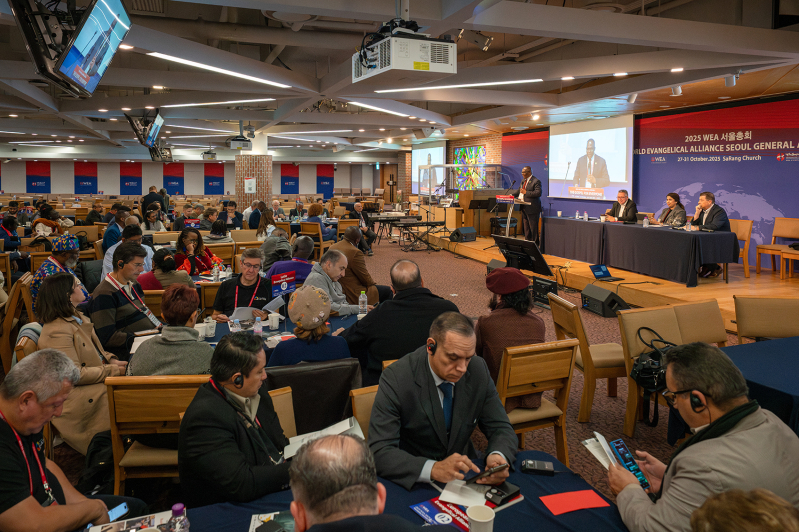
The Italian Evangelical Alliance (L’Alleanza Evangelica Italiana) says a change in mentality in evangelistic fervour is needed in Italy, following the General Assembly of the World Evangelical Alliance (WEA).
The WEA concluded its General Assembly on Oct. 31, 2025, in Seoul, South Korea, following five days of worship, discussion, and reflection under the theme “The Gospel for Everyone by 2033.” The event gathered 850 participants from 124 nations, uniting evangelical leaders from across continents to chart the global movement’s direction for the next six years.
The General Assembly marked a historic transition in the 179-year-old alliance, with the election of a new International Council, the appointment of a new Chair, and the installation of a new Secretary General and CEO, Rev. Botrus Mansour of Nazareth, Israel.
In a wide-ranging reflection on what happened at the event, the Italian Evangelical Alliance in an email news update in Italian (Nov. 18) saw the GA marking “a new season of metamorphosis in evangelicalism: unity of vision, renewed missionary impulse, organizational strengthening.”
A truly polycentric Christianity has emerged, according to the Italian group, citing data that 70% of evangelicals now live in the Global South, and the “trajectory of mission and leadership is realigning itself with this reality.”
“The data marks a turning point: since the 1980s, the driving force behind evangelicalism has come from the Global South. For growth to be truly evangelical, and not just numerical, it must translate into more discipleship, more holiness, and greater pastoral competence.
“Here a wound emerges: tens of thousands of churches lack adequately trained leaders. Hence the urgency of a reform in training: overcoming rigidity, enabling flexible and contextual paths, assessable in terms of life transformations and the sustainability of commitment.”
The appointment of Botrus Mansour, an Arab Christian leader, as its new Secretary General and Chief Executive Officer for the WEA shapes this change, the Italians added, bringing together symbolism and substance.
“Plural identities recomposed in Christ become an attitude of service, listening, and co-design. His proposal is straightforward: start from the vision, with the cornerstones of unity, for a holistic and comprehensive service and message. In this way, structure and communion are held together: preserving the fruits, converging on shared and verifiable objectives, transforming collaboration into a living body, which is what the WEA is called to be.”
The Italian EA lauded that the WEA, “after particularly difficult years,” now appears “more transparent, more connected, and more impact-oriented.”
In Italy itself, the national EA sees a requirement of changing mentalities, not just adopting solutions from others.
“For Italy, it is not a matter of hoping for a 'copy and paste' solution, but of encouraging a change in mentality. Some trajectories emerge clearly:
“Enhance the operational dimension of evangelical unity: build alliances between denominations, networks of churches, and emerging communities, overcoming chronic fragmentation, preserving passion for the Gospel and faithfulness to the Word.”
Keeping evangelism and social commitment together is a further priority, added the Italian EA, integrating Jesus' proclamation and method into the “digital ecosystem, workplaces, and cities with cultural intelligence and ethical rigor.”
“Strengthen the bridging role of European evangelicalism: do not re-propose lost centralities but connect the roots and innovations of the global South, facilitating interaction, collaboration, and mutual learning,” the member alliance further noted.
“The direction is demanding and fruitful: continuity in prayer, sobriety in administration, boldness in innovation, firmness in holiness. Thus, the horizon of 2033 ceases to be an abstract goal and becomes a shared practice. And because the Gospel is light, its spread does not blind: it illuminates. When biblical unity in diversity becomes action, the world does not only hear what we say: it sees Who we proclaim.”






